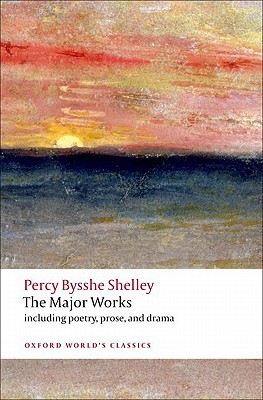
The Major Works
Book Description
Words that ignite revolutions, love that transcends time, and a quest for truth that defies convention—welcome to the world of Percy Bysshe Shelley. His major works weave vibrant tapestries of passion and rebellion, exploring the very essence of existence. From haunting sonnets to fiery odes, every poem challenges the status quo and urges the heart to break free. With vivid imagery and profound themes, Shelley paints a universe where beauty and despair coalesce. As the echoes of his verses resonate through the ages, one question lingers: what kind of world could emerge when art dares to challenge reality?
Quick Book Summary
"The Major Works" of Percy Bysshe Shelley showcases the poet’s revolutionary energy, lyrical beauty, and philosophical daring. Bringing together Shelley's most influential poems and prose, the collection embodies the spirit of the Romantic movement: an embrace of nature, imagination, and the transformative power of art. Shelley's works confront social injustices, advocate for political liberty, and reflect on the individual's role in a turbulent world. Alongside passionate love and radical hope, Shelley explores despair, loss, and the fleeting nature of existence. His innovative verse forms, vivid imagery, and incisive essays challenge readers to question convention, pursue freedom, and dream of a better world. Through this selection, Shelley emerges not just as a poet but as a visionary whose words continue to inspire engagement and resistance.
Summary of Key Ideas
Table of Contents
Rebellion Against Oppression and Authority
Shelley’s major works are woven through with the spirit of rebellion and the challenging of established norms. From his early essays to the grand poetic visions of later years, Shelley denounces tyranny, religious dogma, and political repression. Poems such as “England in 1819” and “The Mask of Anarchy” cast a searing light on governmental corruption and social injustice, urging collective awareness and action. Shelley’s relentless advocacy for freedom—be it social, political, or personal—infuses his verse with urgency and timeless relevance, positioning art as a form of resistance capable of igniting revolution and transforming societies.
The Transformative Power of Imagination and Art
Imagination and art were, for Shelley, supreme faculties capable of reshaping the world. He views the poet not just as a creator of beauty but as a leader and prophet. In “A Defence of Poetry”, Shelley argues that poetry creates the moral and emotional capacities by which societies evolve. His odes and lyrical works—such as “Ode to the West Wind”—depict the imagination’s ability to transcend suffering, revitalize culture, and dream up new possibilities. Art emerges as a radical force and the means through which individuals awaken to higher truths and a renewed sense of freedom.
The Union of Beauty and Despair
Shelley’s verse oscillates between ecstatic visions of beauty and profound encounters with despair. In poems like “Adonaïs” and “To a Skylark”, Shelley grapples with mortality, loss, and the limits of human happiness. Yet even as he laments impermanence and personal sorrow, his work finds in despair a deeper, redemptive beauty and the seeds of hope. Shelley’s eloquence elevates suffering into universal meditations, revealing a vision wherein grief becomes a wellspring for empathy, compassion, and the pursuit of an ideal world.
Nature as a Source of Inspiration and Revolution
Central to Shelley’s worldview is a reverence for nature—not just as a source of awe but as a powerful agent for change and inspiration. Through the wild, untamable forces of wind and sky, Shelley channels the energies of renewal and transformation. In “Mont Blanc” and “Ode to the West Wind”, nature reflects both the sublime and the revolutionary, embodying the turbulent spirit of the age and humanity’s own yearnings for change. Nature, for Shelley, is both muse and metaphor for the dynamic, evolving self and society.
The Pursuit of Truth, Love, and Idealism
Interwoven through Shelley’s poetry and prose is a relentless pursuit of truth, love, and higher ideals. His works celebrate the potential for spiritual and emotional union that transcends the material world. Shelley's idealism—manifest in works like “Prometheus Unbound”—ventures beyond immediate reality to envision societies founded on justice, peace, and mutual understanding. Ultimately, his oeuvre encourages readers to remain open to wonder, to question received wisdom, and to strive ceaselessly for personal and collective liberation.
Download This Summary
Get a free PDF of this summary instantly — no email required.





